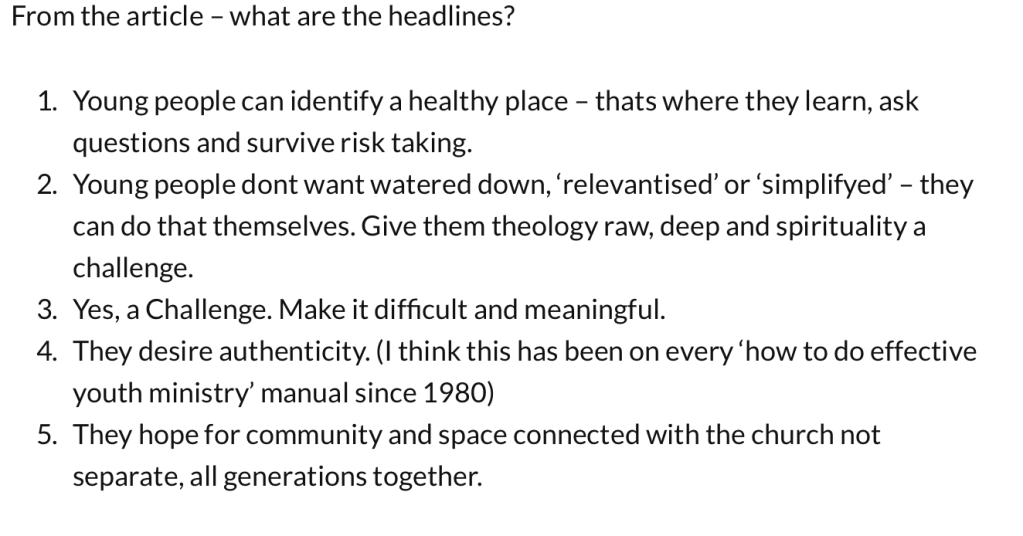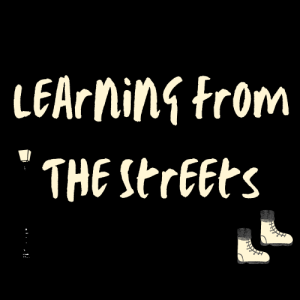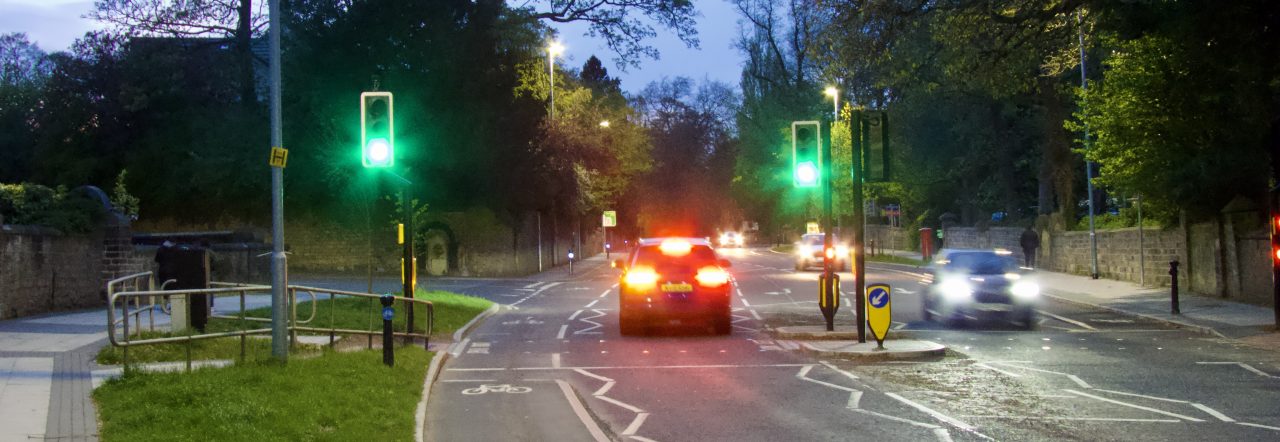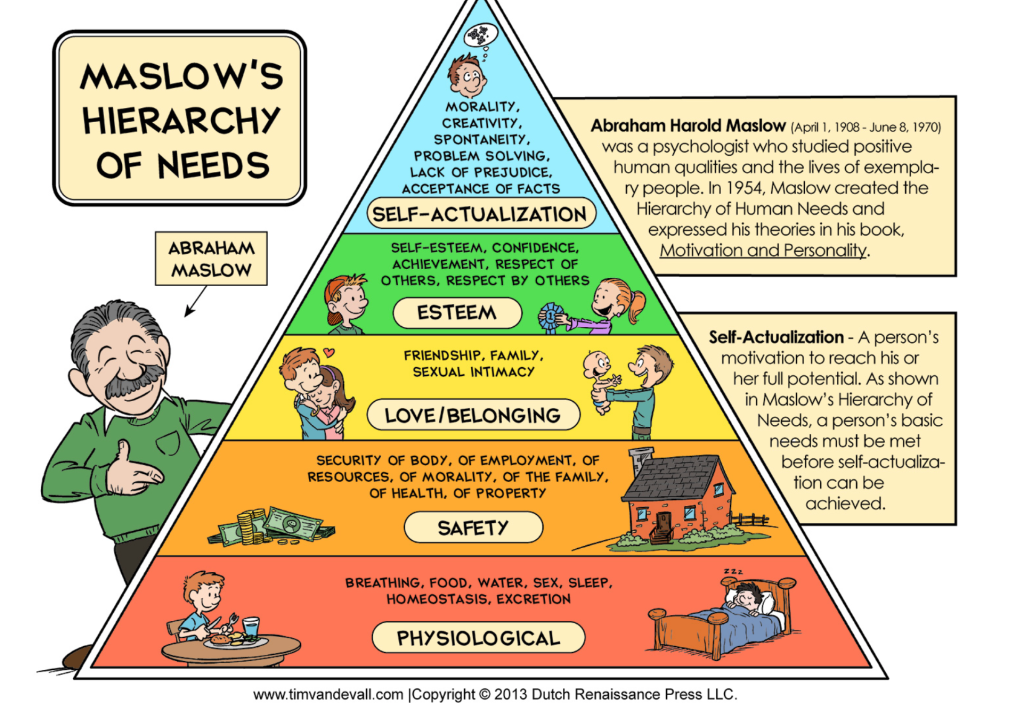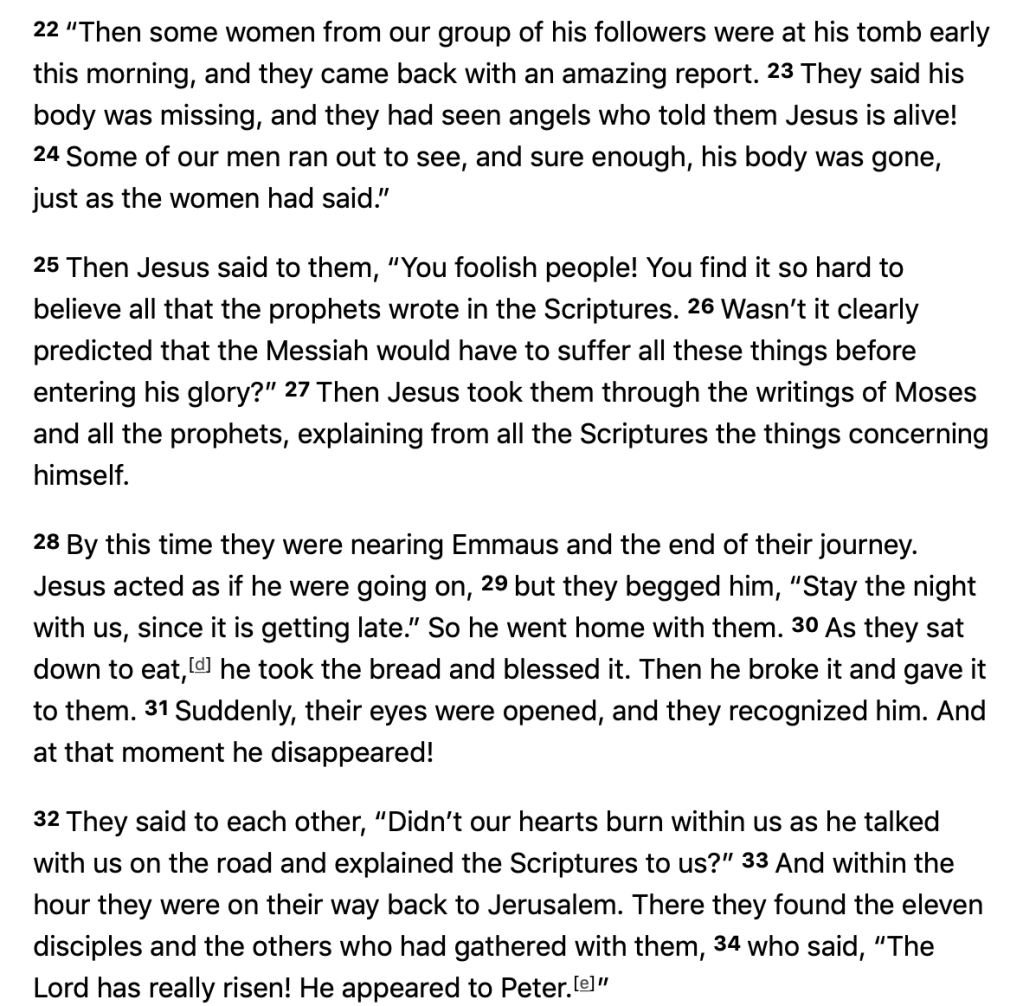As a youth worker, or should I say, at the time, volunteer youth minister back in the mid nineties, and then fresh faced trainee youth minister a decade later, playing, and chasing cars was never too far away. I dont mean the Snow Patrol song. I mean the movie.
You see from , actually since 1981, there has been ‘that’ statistic.
Whether true, completely or not, but ‘that’ statistic that between 1971 and 1981, over 300 young people left the church every week in the UK.
And that statistic was shared with me in youth ministry training both in mid 1996 and also 2004. Was this the mantle I took responsibility for – was I now charged with solving and fixing this problem, was I the ‘enthusiastic’ one to get the lost young people back into church, to do the ‘great reverse’ inspired by being a ‘new generation’ a ‘chosen’ generation…
What I, and the church, was in was a game of ‘Cars’.
You see in the ‘Cars’ film, there is a town, a village and it is thriving.
And it is full of life, vibrancy, there is community, there is trade, there are tourists, there is colour, there is the smell of coffee, diesel oil and farming, of new, local and prosperity. There is happiness. There is promise. There are cars, there are races and there is rhythm.
And it is all disturbed by the building of the freeway (for the purposes of this piece I will return to the UK descriptor)
At first the town celebrated the building of the motorway (UK) . This new invention, it will mean great connection, new tourist, new trade and the ability to to access places far away, only that the problem was, the motorway didn’t.
The town was bypassed. People stopped going to the town for their diesel, and when they stoped doing that they stopped going to the cafe too, and its hotel, and its souvenir shop. The town didnt realise that it was more dependant on tourism than it realised. And gradually life got tough, as the visible signs of the people reduced dramatically.
To give you a real glimpse, there are over 3,800 ghost towns in the USA, 10 of them are described here, and not all of them closed due to the building of a bypass. Some closed due to closure of mines and industry.
For quite a number of years, churches and youth ministry have been playing cars.
Drones of young people leaving the church, and churches reducing in numbers, like a proverbial ghost town, so..
Firstly there has been inquests about what the causes of the bypass are.
Some choose to blame the road – (culture) – Post modernism, consumerism, Sunday trading, Football and leisure, Generation X/Y
Some choose to blame the cars and the drivers – ‘They’re sinful for not driving their car to us’
Yet most people dont leave the church because of faith, its more likely that they have been harmed, or strategised out of it. A closure of a Sunday school, a decision about a marriage (cant they get over that it was years ago?), sexual abuse, being not chosen for leadership, not being a favourite, growing out of it –
For a number of people they ‘used to’ drive their car to the town, but, when they did, the car got beaten up, bruised, they didnt get great service at the cafe, the prices went up and they felt they could drive away and not be noticed.
Then the out of town service station and mega complex shopping centre got built on the highway. The Ghost town was doomed, as was the church in it, waiting to die, but just hoping beyond hope for one new idea, one new thing to save it.
As a youth worker, the game of cars turned from understand the reasons for the ‘bypass’ and its causes… to trying to ‘attract’ people back
But its a forlorn competition. Trying to make music in the old chapel sound a little better with a drum kit, when there’s an iPhone shop in the shopping complex. Looking to ‘whats happening at the complex’ and giving it a go. The pattern started to set the scene.
Look at thats happening on the freeway and give it a copy – try and be relevant – be a victim to the changing trends of culture on the fast moving freeway. Coffee and doughnuts, music, t shirts and identity. Make Church cool. Somehow. Might stop a few kids ever driving on the bypass. And tell them that the bypass is full of potholes and dangerous. Dont go on it…youll never come back…and that was the problem, they didnt…. (and if they did they couldn’t tell anyone that they did)
Still with me?
Were still playing cars.
Those in the town went from blaming the road, to copying the road.
The cars were manipulated into moving ‘with the times’ and somehow preferred the mass produced coffee, sold to them, rather than Rosies coffee from next door to the mechanics. Megastore church sold a vision of progress.
In my version of the movie the town did something else. They tried to look for answers from the creators of the bypass.
The manipulative management companies that sold lies about the prosperity that the bypass would make (who didnt actually care) – were then sought to enquire about solutions to the current problem of the town. The town looked to the very thing that destroyed them, to find answers.
How to get the people back? They asked, – can you build a junction and a new road?
Yes, but it’ll cost..
And sign posts, and can you encourage people not to go to the service station and supermarket?
No, we cant do that, there are competition laws, set up the supermarket, so no, that isn’t going to work, tell you what though, if you can write a really good bid, we might help you fund the junction and new road
So the town put all its funding raising efforts into gear and successfully managed to fund a new junction and road off the free way. Managed to give people an opportunity to see their town. But, they were exhausted, and though one of two did, most people still bypassed it. And now the town has lost its resources.
They went the management companies for more money, none came. They were shamed for failing and blamed for having poor leadership. The management company as a concession suggested a mini megastore on the High street. Rosies coffee closed in days. Mega brand coffee express in the supermarket helped get rid of that.
The few visitors that did arrive found a tired town and one angry that it now had no money, when new people arrived they were reluctantly thanked for being there, with an ‘about time’ greeting. They could only spend money at the mini megastore.
But the town so bypassed, went looking for answers in the very thing that destroyed it. It was angry, and bitter as it had bought a solution and lost itself.
But what happened in the movie? the one that Pixar and Disney actually made?
The Town then began to look within.
The Town saw itself
as a community.
The Town stopped looking outside for answers, and blame, and looked to themselves.
They realised they could do something. They also realised they had hidden gems within.
They realised they had something no mega store could ever have.
They had charm, they had history, they had longevity, they had character, they had personality.
The shopping centre sold a soulless universe. So the town began to show off its character. Show off what it had.
Worked together on being something more than it was when it was trying to compete, and in sharing, and being community began to form depth, and truth. They focussed on what they had, without trying to compete or make money…and within this there was gold dust sparkling. History was revealed. They ignored the propaganda distributed by the developers, and realised that they were backwards as a town, but had gifts, they had more than what was designated as progress could ever offer.
People started to choose to drive off the motorway, because the town was a place that realised its own soul.
It smiled, greeted, welcomed, it didnt try so hard, it forgave its faults, and worked together. It didnt lose its soul, completely, and won it back.
What if you gain the whole world – but lose your very soul?
Im glad I stopped playing cars a long time ago.
What is the soul of your church? Young people? Community?
Its defiantly (and definitely) time to stop looking for blame or answers whilst driving along the motorway. Its time to look a lot closer.
A new idea might get presented out the back of a car driven from the motorway, often a sports car on the quick sell. If its too good or quick to be true… its likely to be. It takes a village to raise a child, a whole village.
What if small is good? What if there is enough people in every village to sustain a church? – in most cases this is true ..especially churches with 10,000 in a parish….Who is most likely to know what is good, soulful, real, characterful about a local community? Who is going to empower it and support in its flourishing? Who might create? Provoke and stimulate creativity, and that spark? Probably someone in the town, in the village, able to connect people up, able to share food, able to reconcile hurts, grievances and care?
Does that need a strategy from the outside? or careful, care and new looking from within?
Maybe its time, as churches and youth workers, to stop playing the first two parts of the cars movie.
References
Rekindling Democracy – Cormac Russell- 2020
